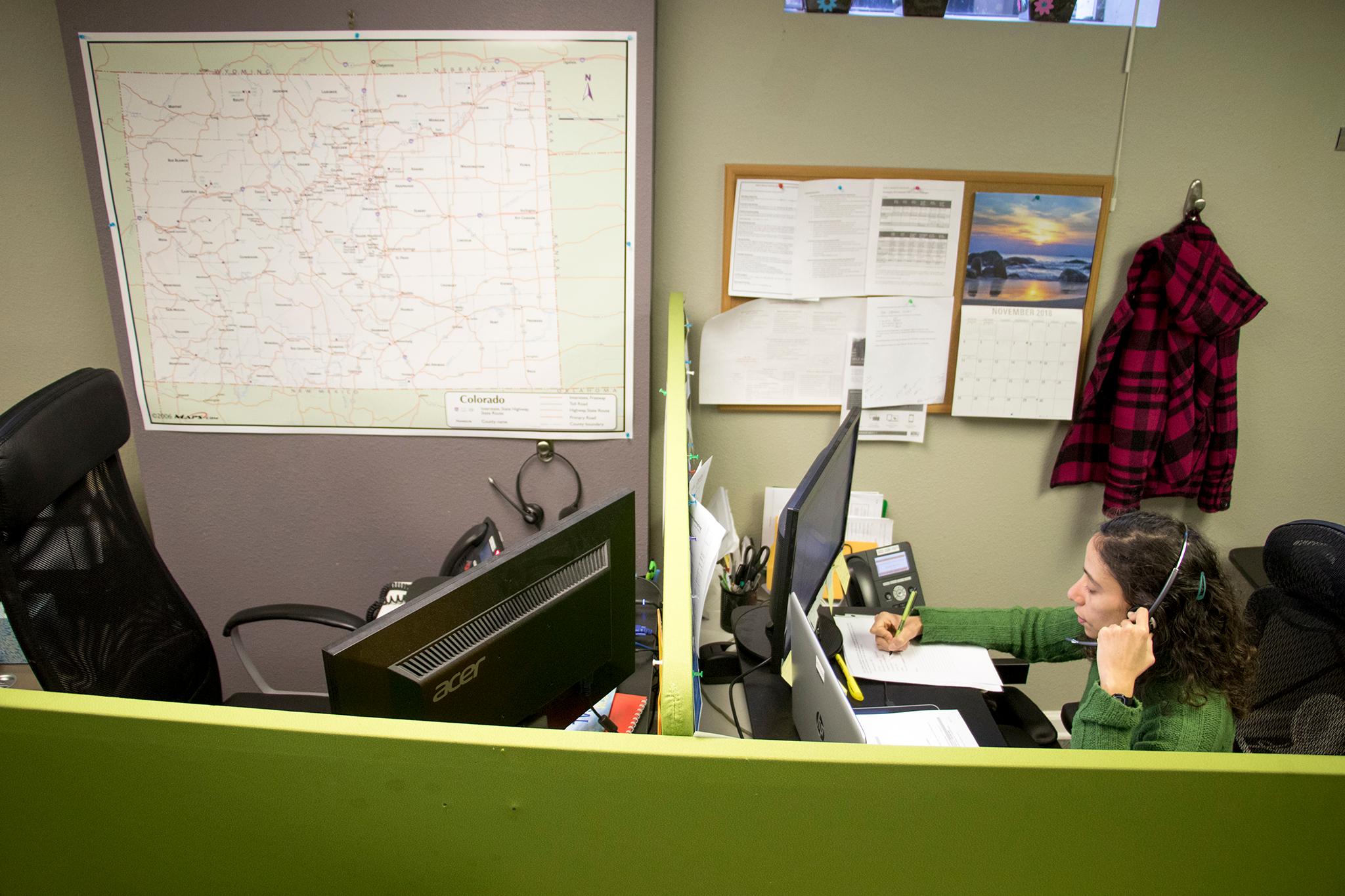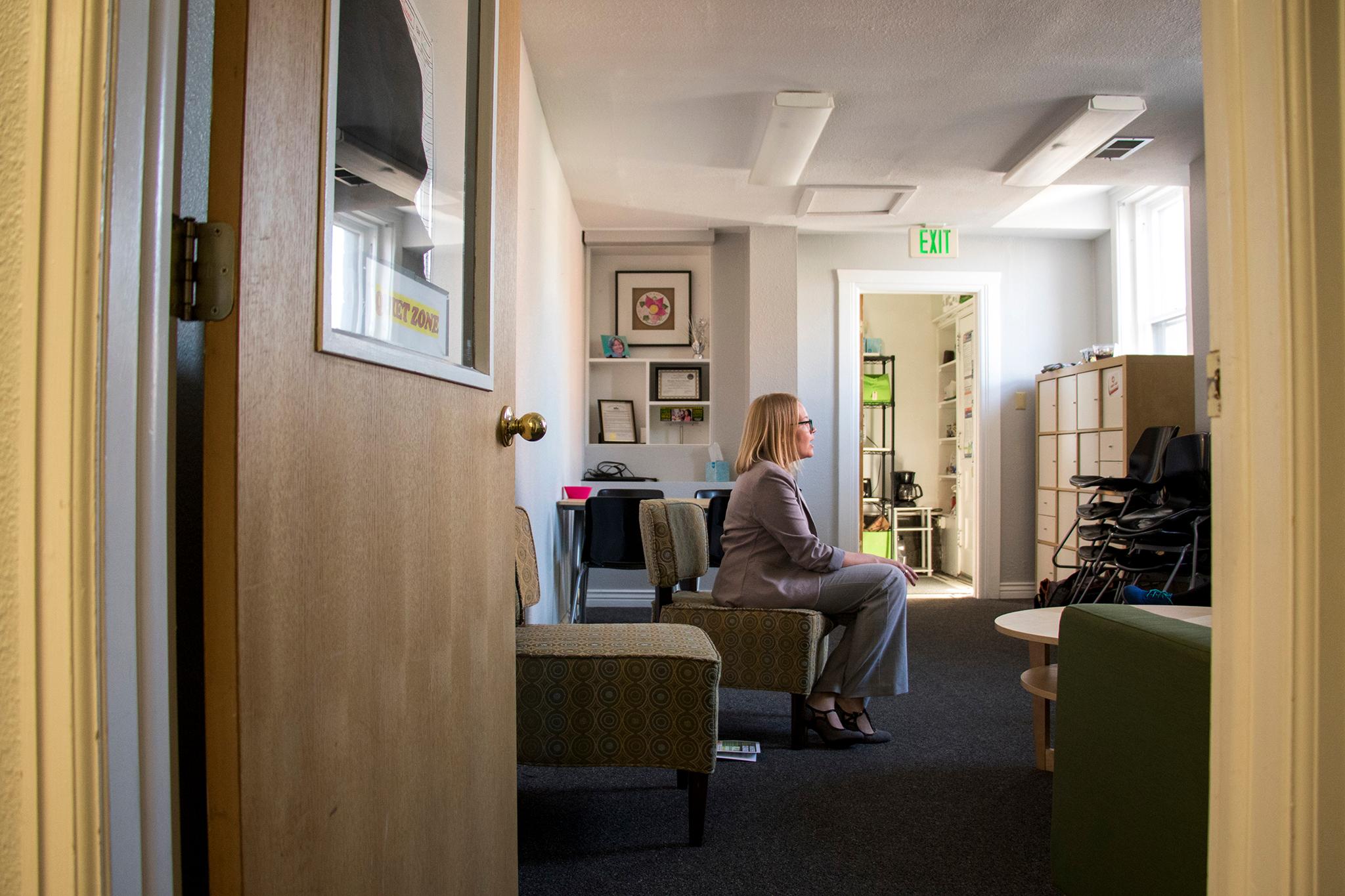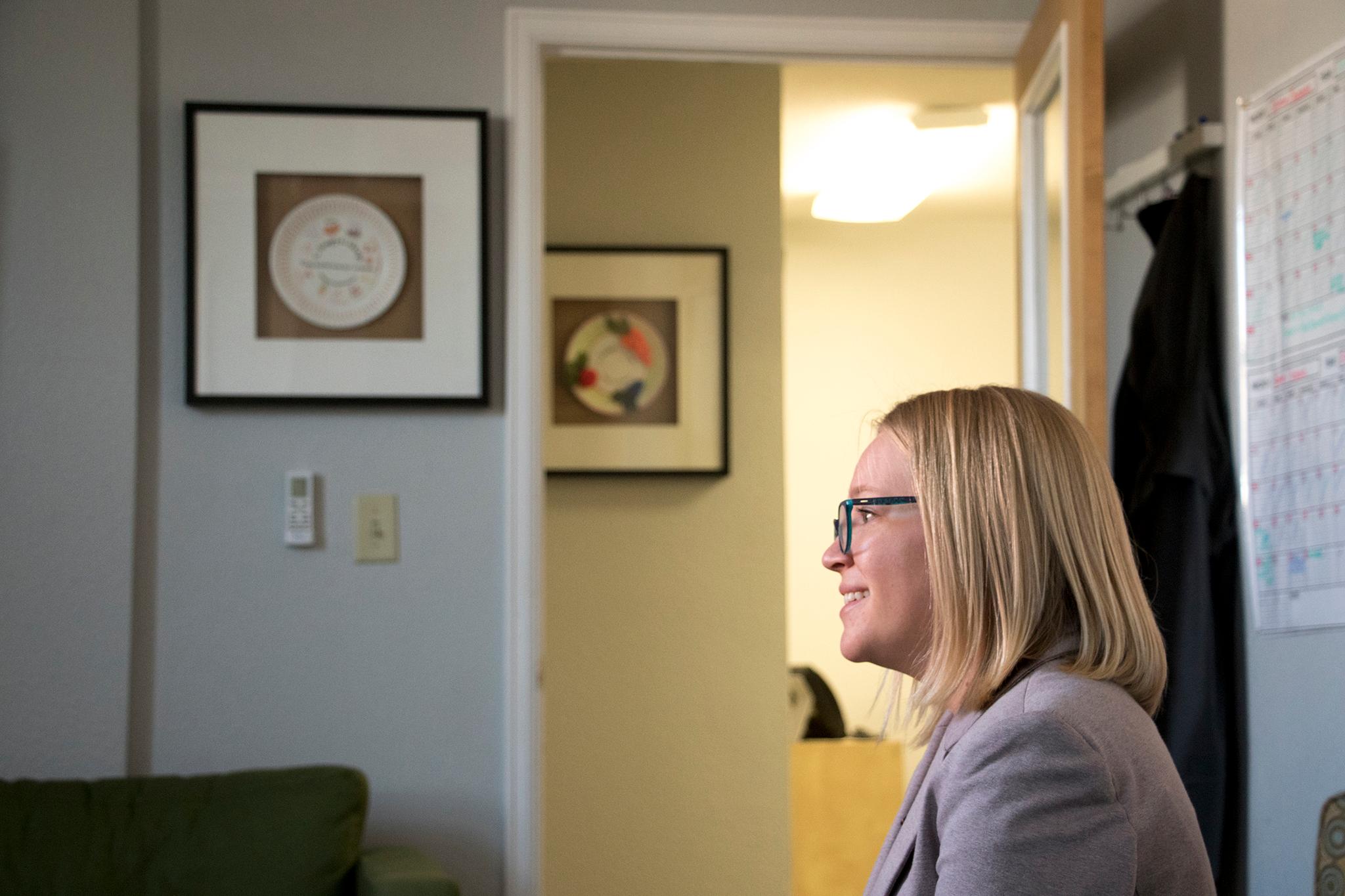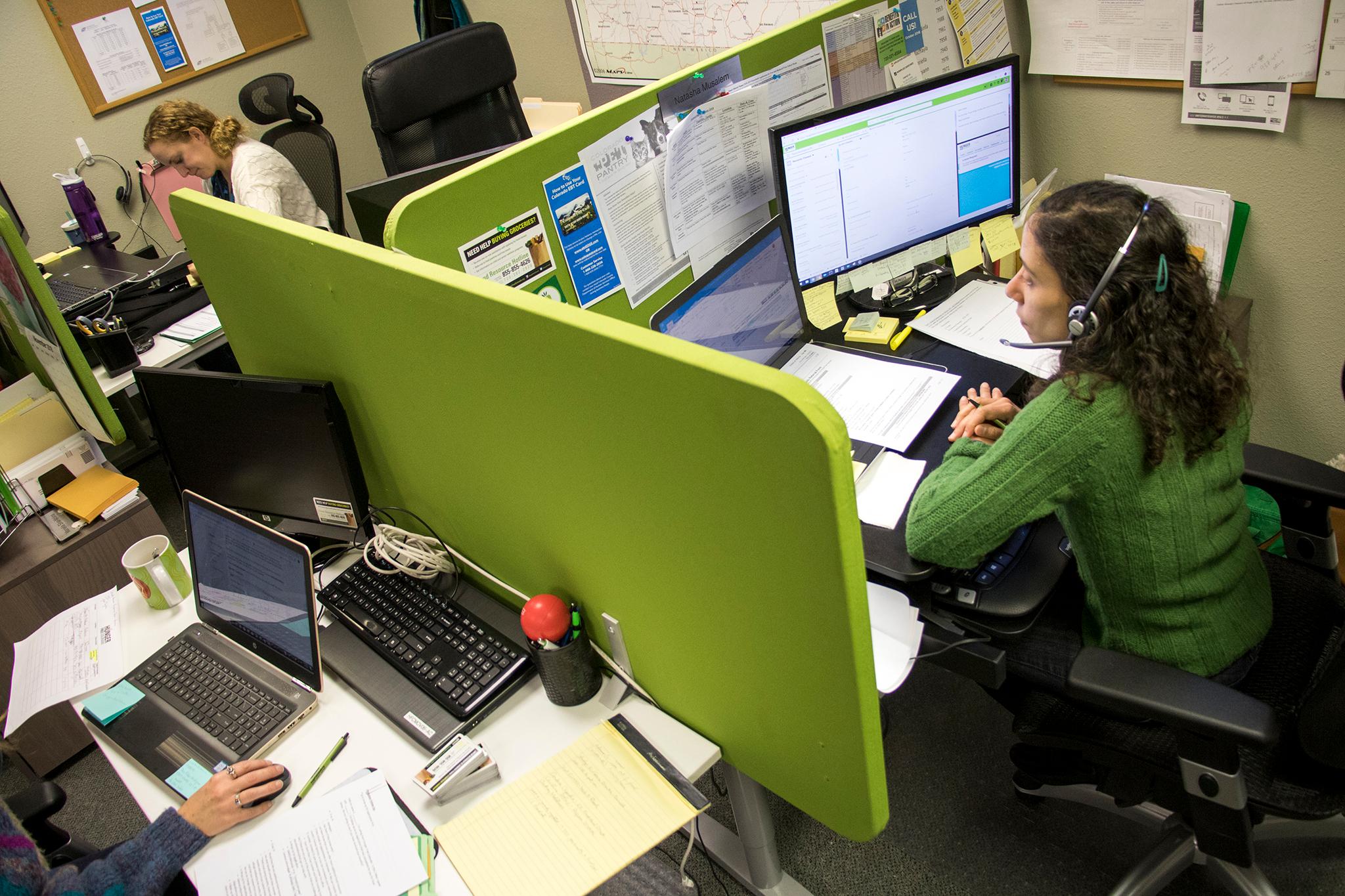Colorado was under court order for a decade to speed up the process of delivering food aid to the state's needy.
Counties across the state, with Denver in the lead, have managed such a turnaround that they recently received over $2 million in federal performance bonuses for improvements in the way they handle the Supplemental Nutrition Assistance Program. Federally funded, locally administered SNAP funds come these days on a card, not as food stamps.
Now the state where an estimated one in 10 residents don't always have enough money for food is setting its sights on getting more people enrolled, which will improve the health and well-being of thousands of Coloradans.
Lawyer Elisabeth Arenales was there at the beginning, helping file a 2004 lawsuit after a new computerized system for processing applications for federal food and other aid worked so poorly that the needy were suffering.
While glitches and errors still pop up, "the state has made really big improvements in the functionality of the system," said Arenales, who focuses on health issues for the nonprofit Colorado Center on Law and Policy.
Getting there took collaboration between federal, state and county officials.
"It has been a long time coming and a lot of work," Teri Chasten, SNAP manager for the state Office of Economic Security's Division of Food & Energy Assistance, said.
At one point, Chasten said, Colorado was among three states that got special attention from the U.S. Department of Agriculture's Food and Nutrition Service. The feds paid contractors to help Colorado, Nebraska and Tennessee improve business practices to streamline SNAP delivery.
The National Center for Law and Economic Justice, which supported Arenales' CCLP in the Colorado lawsuit, has tracked problems across the country linked to efforts to use automated systems and other technology to modernize administration of benefits like SNAP.
"The consequences have too often been disastrous for benefits applicants and recipients when system failures lead to rampant delays, denials and terminations of otherwise eligible people," NCLEJ lawyers wrote in 2016. "Litigation has been necessary to fix systemic delays in getting benefits to eligible households in states where modernization has fallen short."
Initially, Colorado's 2004 lawsuit resulted in a restraining order requiring the state to add computer capacity and take other steps to improve the application process, Arenales said.
The suit also involved Medicaid. Lawyers brought as witnesses elderly people who were homebound and couldn't get medical care as well as families who were going hungry without food aid.
"We were talking about 600,000-plus peoples' benefits," Arenales said.
"The harm was very real."
SNAP is key to ending hunger and improving well-being in Colorado, according to the Colorado Blueprint to End Hunger, a plan released earlier this year that resulted from discussions among scores of government agencies, nonprofits and businesses. The plan's recommendations included increasing the number of stores that accept SNAP cards and strengthen programs that allow SNAP recipients to use their benefits at farmer's markets -- the latter also strengthens local agricultural economies. The Blueprint authors estimated that the average $130 per person per month in benefits to buy nutritious food lifted some 117,000 Coloradans out of poverty every year between 2009 and 2012.

A 2008 settlement in the SNAP case put the state under court supervision to ensure it met requirements that included the timely processing of new aid applications 95 percent of the time for at least 12 months in a row. Among other steps, the paperwork was reduced, with the application form shortened from 16 to eight pages. Finally in early 2017 District Judge Jay Sutherland Grant ruled Colorado had met its obligations.
Reggie Bicha, executive director of the Colorado Department of Human Services, said in a statement when the judge's order ended the case that "people who are overcoming poverty and come to us for food or cash assistance need their benefits right away.
"They need government services to be efficient, timely and accurate. The old system was broken, and people waited too long to get the assistance they needed. We've worked tirelessly with the help of our county partners to create a system that works effectively for Coloradans. Today, the majority of applications can be submitted online, and applicants receive a response within 48 hours."
In fiscal year 2016, Colorado earned a $796,094 bonus from the federal government for placing No. 2 among the states and territories for the percentage of cases determined in a timely matter, at 98.18 percent, just behind Idaho at 98.58. In 2008, the year it was placed under court supervision, Colorado was 52nd among 53 states and territories for timeliness.
Colorado also was the top state in 2016 when it came to improving its score for following procedural rules and avoiding errors, earning another $787,149 bonus.
The next fiscal year Colorado was fifth for timeliness, earning a $717,037 bonus.
Colorado is a local-rule state, and counties -- not the state -- administer SNAP and other benefits programs.
The counties have stepped up, the state's Chasten said. Arapahoe, for example, developed its own work management system that was so effective other counties adopted it. In Denver, in 2015 the human services department started a program in which families could show their SNAP card at the ticket window at attractions that include the city's zoo and botanic gardens and get admission for just $1 for up to 10 people.
The move was meant both to encourage more people to sign up for food aid and to perhaps lessen the stigma around receiving benefits, said Todd Jorgensen, the deputy executive director for assistance at Denver Human Services. It also showed creativity in seeking partners.
"The city, the state, the federal government doesn't have the resources, the expertise to do this on our own," Jorgensen said. "We really need to partner with our community."
His department is working with nonprofits like Hunger Free Colorado, retailers and others on a task force focused on improving SNAP processing and participation. The task force will release a report next month. Jorgensen offered a sneak peak at recommendations in the report, such as adopting more accessible office hours and adding more benefits like the $1 dollar admission fee and a program that allows SNAP dollars to go further at farmer's markets.
The state's Chasten said: "Denver is obviously the county that has the largest population, so their improvement, or lack thereof, does impact us greatly. They have made a lot of improvements and try to be innovative."
Local officials estimate one in six people in Denver struggle with hunger or uncertain access to enough food.
The lawsuit over timeliness behind them, "we aspired for more. We're really focused on access," Jorgensen said.
Only six in ten eligible Coloradans - it's a few percentage points higher in Denver -- are now getting food aid, compared to a national average of three in four.
Jack Regenbogen, another lawyer with the Colorado Center on Law and Policy, said timeliness plays a part here.
If applicants are waiting indefinitely for responses, can't get through to a human to answer questions and may not have the cell phone minutes to wait long on hold, "eventually people are going to give up," said Regenbogen, who specializes in improving the economic security of low-income Coloradans.
His colleague, Arenales, said the implications are stark:
"What it means is we have people who are eligible going hungry."
There are misconceptions about who's eligible and who's using SNAP -- even among those who are eligible.
The state recently began offering SNAP to families earning up to 200 percent of the federal poverty level. At the previous 130 percent cut-off, families risked losing benefits if they got a slight raise or a few extra hours at work. State officials say the change offered stability to families and reduced the bureaucracy of tracking income.
Stigma around receiving government benefits may be part of the reason SNAP enrollment is low. Hunger Free Colorado has tried to address that with an online campaign in which Coloradans from all walks of life -- doctors, entrepreneurs -- talk about how SNAP saw them through emergencies born of a health scare or job loss. On average, a family receives food benefits for about a year, the state's Chasten said.
"It's there as it's intended, to help people through the difficult times," she said, adding that on average 475,000 Coloradans - 44 percent of them children -- are receiving the benefit in any given month.
Lack of awareness is another barrier. Chasten looks back on her first career as a teacher. It's only since she began working as a SNAP administrator that she realized she and her husband were eligible for food aid when they were younger.
Ellie Agar, interim communications director for Hunger Free Colorado, said such "hidden moments" are common.

Her organization has addressed that in part with an awareness campaign that includes urging doctors and nurses to check whether patients have had trouble feeding their families. When the answer is yes, Hunger Free Colorado is alerted and one of its food assistance navigators follows up with a phone call to the family.
When Mariella Silva-Molina isn't making such a call, she might be waiting to receive one from someone who has heard about Hunger Free Colorado's food assistance hotline, perhaps from a flyer left at a library or rec center.
Silva-Molina, wearing a headset and cocooned in an office cubicle made of bright green panels that double as bulletin boards, said some callers just need directions to the nearest food pantry. For others, she can log onto a state website and talk a caller through the application process. She can also check the state database on behalf of clients and follow up to alert them to a request for documents to prove their income, remind them of impending interviews needed to complete the process, or let them know when they are nearing the recurring six-month deadline to let the state know whether they want to continue receiving SNAP benefits.
"We try to close the circle, make sure that if they have a chance to be approved for benefits they complete the application," she said.
Silva-Molina, who was born in Venezuela has worked at Hunger Free for a year.
"I'm not from the United States. When I came here, it was shocking to find that we have families that are going hungry," she said.
Even as Coloradans have been buoyed by their progress on SNAP, they worry about a new challenge.
The Trump administration has suggested broadening the circumstances under which a legal immigrant seeking permanent residence status would be labeled an undesirable burden on the state.
In the past, taking the cash benefit known as Temporary Assistance for Needy Families or federal help paying for long-term care could make an immigrant a public charge and thereby weaken his or her chances of getting a green card. Under President Donald Trump, the Department of Homeland Security has proposed adding SNAP and other benefits to the list of "public charge" triggers.
While the idea is at this point only a proposal, observers at Hunger Free and elsewhere have seen "a bit of a chilling effect," Agar said.
"There are families who are not enrolling because of fear," she said.
A black-on-white sign on the green panel behind hunger navigator Silva-Molina's computer lists her organization's credo:
"MISSION: Hunger Free Colorado exists to end hunger in Colorado.
VISION: Nutritious food is understood as a basic right."
Silva-Molina said: "I want to be part of the solution."














